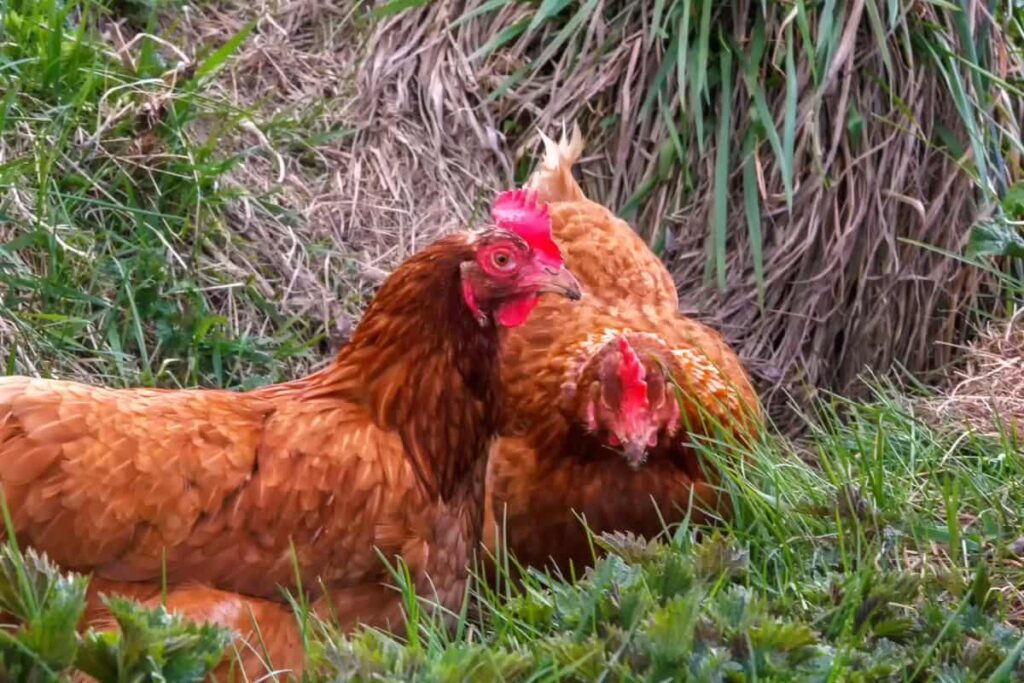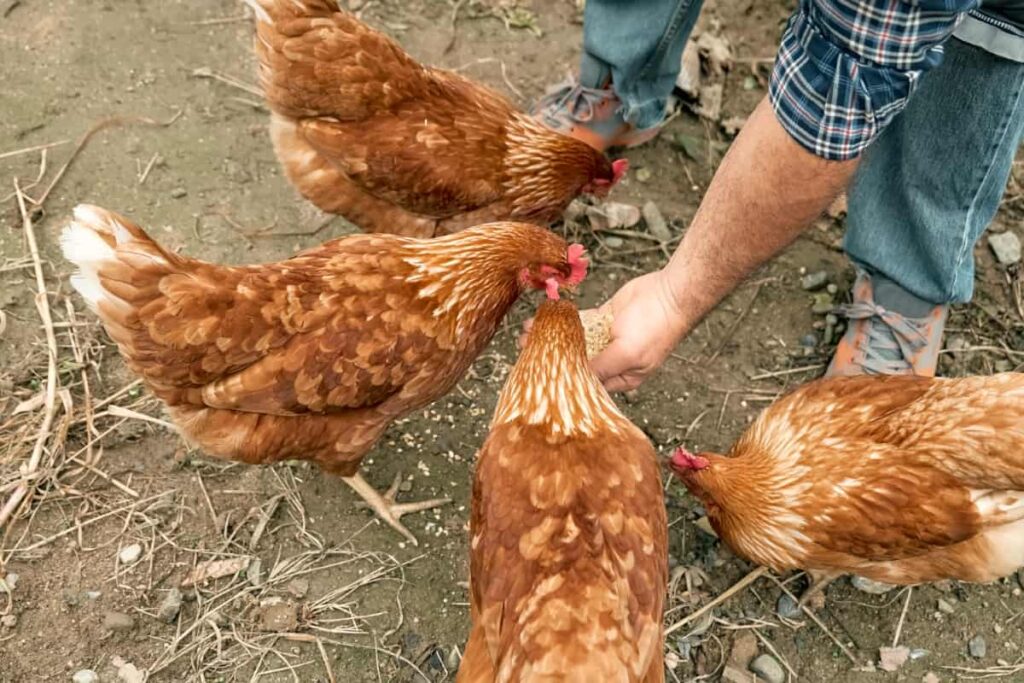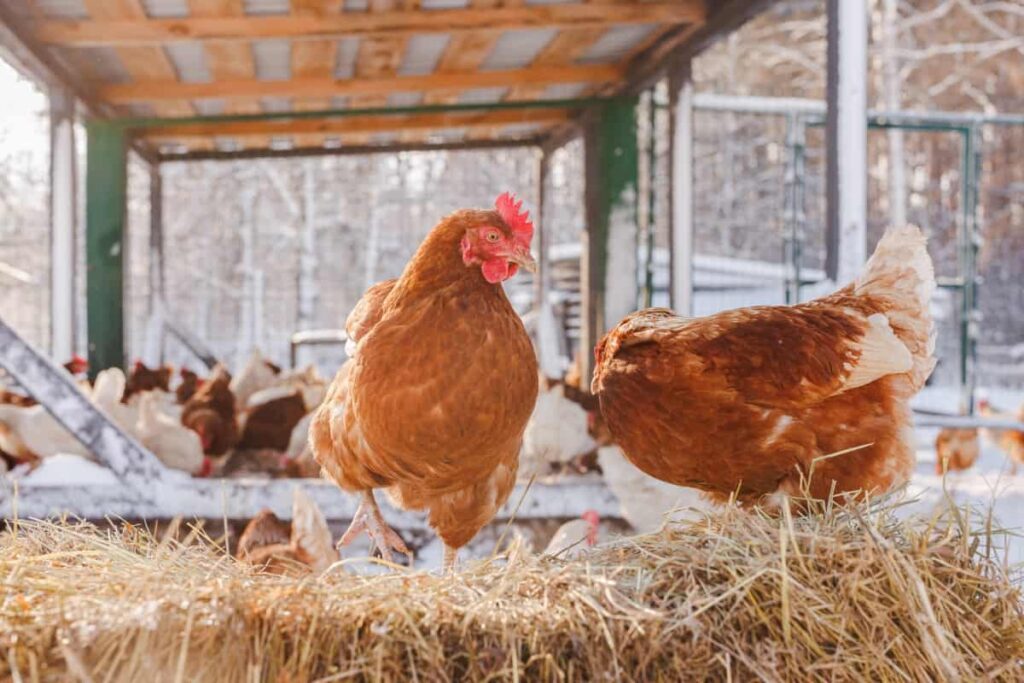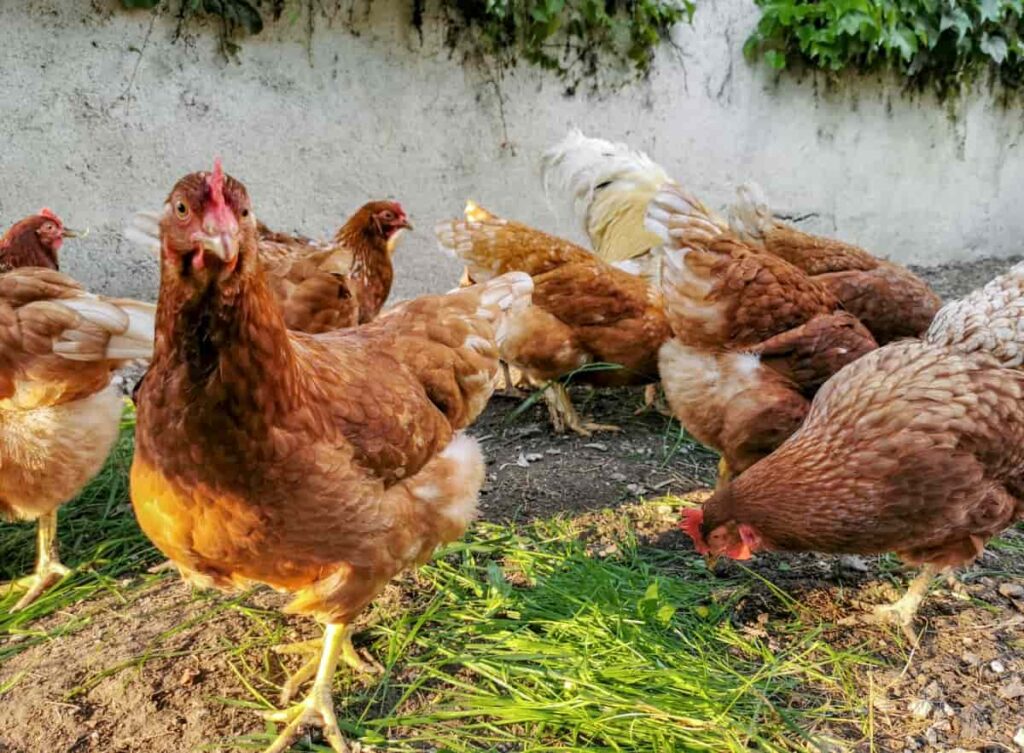The Gold Star chicken breed, also known as Golden Comet, is a breed created by crossing specific breeds to achieve desirable traits. These chickens are popular for their excellent egg-laying abilities and friendly temperament. Here are some facts and general guidelines for Gold Star chicken raising.

How to Raise Gold Star Chicken
Gold Star Chicken Facts
- Characteristics: Gold Star chickens are known for their striking appearance, featuring golden feathers with black speckles. They often have a single comb and bright, alert eyes.
- Behavior and Temperament: These chickens are generally docile and friendly, making them excellent additions to backyard flocks. They tend to be curious and enjoy foraging for food.
- Size: Gold Star chickens typically reach a moderate size, with hens averaging around 6-7 pounds and roosters slightly larger.
- Lifespan of Gold Star Chickens: With proper care, Gold Star chickens can live for 5 to 8 years on average.
- Price: The price of Gold Star chickens can vary based on factors like age, breed purity, and seller, but they generally range from $20 to $25 per bird.
- Egg Production: Gold Star hens are prolific layers, capable of producing around 250 to 300 large brown eggs per year.
- Gold Star Egg Color: Their eggs are brown in color, often with speckles or darker shades.
- Breeding: Breeding Gold Star chickens typically involves selecting birds with desirable traits such as egg-laying ability, temperament, and conformation. Breeders may focus on maintaining or improving these characteristics through selective breeding programs.
Raising Gold Star Chickens
Coop Setup
Space Requirements: Ensure a minimum of 3-4 square feet per chicken inside the coop, with additional space in the outdoor run. This allows for adequate movement and prevents overcrowding, which leads to stress and disease in backyard Gold Star poultry keeping.
Ventilation and Insulation: Provide ample ventilation to regulate temperature and moisture levels, which is crucial for maintaining chicken health. Insulate the coop to moderate temperature extremes, especially in colder climates, while ensuring proper airflow to prevent ammonia buildup.
Nesting Boxes: As Gold Star Chicken coop essentials, incorporate nesting boxes with soft bedding material for egg-laying, ensuring they are elevated off the ground to deter pests and predators. Aim for one nesting box for 3-4 hens, each sized approximately 12×12 inches, providing a comfortable and private space for egg-laying.
Feeding and Nutrition
Starter Feed: Provide Gold Star chickens with high-quality starter feed during their early weeks to support rapid growth and development. This nutrient-dense diet ensures essential vitamins and minerals for healthy chick development.
Layer Feed: Transition to layer feed when Gold Star pullets reach maturity for optimal egg production. This specialized feed contains the right balance of nutrients, including increased calcium, to support strong eggshells and overall reproductive health.
Access to Grit and Calcium: Offer access to grit for improved digestion and calcium supplementation for laying hens. Grit aids in grinding down grains, while calcium supports robust eggshell formation, ensuring the well-being of Gold Star chickens throughout their life cycle.
Water Accessibility
Clean Water: Ensure chickens have access to clean, fresh water at all times. Regularly clean waterers to prevent contamination. Monitor water levels to prevent dehydration, especially during hot weather. Consider using nipple drinkers or waterers with covers to minimize contamination and spills.
In case you missed it: Welsummer Chicken Breed: Facts, Characteristics, Egg-Laying, Price, and Lifespan

Health Management
Regular Health Checks: In Golden Comet chicken care, implement routine health checks to monitor the well-being of Gold Star Chickens. Regular examinations help identify any signs of illness or abnormalities early, allowing prompt intervention and preventing the spread of diseases within the flock.
Parasite Prevention: Establish a comprehensive parasite prevention program to safeguard Gold Star Chickens from common pests. Regularly deworming and using effective parasite control measures will ensure a healthier environment, minimizing the risk of infections and promoting optimal growth for Gold Star hen health management.
Cleanliness: Maintain a clean and sanitary living environment for Gold Star Chickens. Regularly clean and disinfect coop areas to prevent the buildup of pathogens. A clean space reduces the risk of diseases and contributes to the well-being and productivity of the flock.
Handling and Socialization
Gentle Interaction: Gold Star chickens benefit from gentle handling to build trust and reduce stress. Regular, calm interaction from an early age fosters a positive relationship with humans, encouraging docile behavior and easier management.
Understanding Pecking Order: Recognizing and respecting the pecking order within a flock is crucial for Gold Star chickens’ social dynamics. Providing ample space, enrichment, and resources helps minimize aggressive behaviors and promotes a harmonious hierarchy. Monitoring interactions ensures all birds have access to food, water, and space, fostering a balanced and contented flock.
Protection Against Predators
Secure Housing: Ensuring a robust coop with sturdy fencing, predator-proof locks, and adequate ventilation is essential. This prevents easy access for predators like raccoons, foxes, and stray dogs, keeping the chickens safe.
Nighttime Security: Implementing measures such as locking coop doors at dusk, installing motion-activated lights or alarms, and using guard animals like dogs or even llamas can deter nocturnal predators. Regular checks during the night also help in thwarting potential threats, ensuring the safety of Gold Star Chickens during their vulnerable resting period.
Egg Production
Consistent Production: Gold Star chickens typically start laying eggs around 18-22 weeks of age, with peak production reached at around 6-7 months. They are known for their consistent egg-laying throughout the year, providing an average of 250-300 eggs annually per hen. Factors such as diet, housing conditions, and health management play crucial roles in maintaining egg production in Gold Star chickens. Regular monitoring and providing optimal conditions ensure sustained egg output,
Behavior and Temperament
Observation
Gold Star chickens typically exhibit friendly and docile behavior, making them excellent choices for backyard flocks. They are known for their inquisitive nature, often seen pecking around in the yard and exploring their surroundings. These chickens are generally friendly, showing little aggression towards humans or other flock members. They tend to be good foragers, actively seeking out insects and plants for food. Gold Stars are also known for their adaptability to various climates, thriving in both cold and warm environments.
Environmental Enrichment
Providing ample space for foraging and dust bathing encourages natural behaviors, enhancing their mental and physical well-being. Offering perches and hiding spots diversifies their environment, stimulating activity and reducing stress. Incorporating novel objects like hanging treats or puzzle feeders fosters mental stimulation, promoting overall contentment and health.
In case you missed it: Dong Tao Chicken Breed: Origin, History, Appearance, Size, Characteristics, Eggs, Price, and Lifespan

Legal Compliance
Local Regulations: Local regulations governing the raising of Gold Star Chickens vary widely. Ordinances typically cover zoning restrictions, noise levels, waste disposal, and permits for commercial operations. Compliance often entails adhering to setback requirements from property lines and obtaining licenses for larger-scale operations. Regulations may also include restrictions on the number of chickens allowed per household and guidelines for coop construction to ensure animal welfare and neighborhood aesthetics.
In case you missed it: Serama Chicken Breed Profile and Characteristics

Conclusion
Overall, Gold Star chickens are prized for their combination of prolific egg-laying, docile temperament, and ease of care, making them a favored choice for those looking for Gold Star chicken raising for eggs or as pets. By following the above outlined guidelines and providing proper care, you can successfully raise a healthy and productive flock of Gold Star chickens.
- Crops Grown in Summer Season: Best Choices for Summer Gardening
- Organic Pest Control for Tomato Farming
- How to Maximize Sheep Farming Profit
- Broccoli Varieties: Choosing the Right Cultivars for Your Farm
- How to Raise Pigs in Your Own Backyard: A Comprehensive Guide
- Budget Friendly Sheep Shed Ideas: Cheap and Low-Cost Tips
- How Much Do Cattle Farmers Make: Revenue Streams in Cattle Farming
- Management Pests and Diseases in Your Cotton Field
- Sheep Farming Business Plan for Beginners
